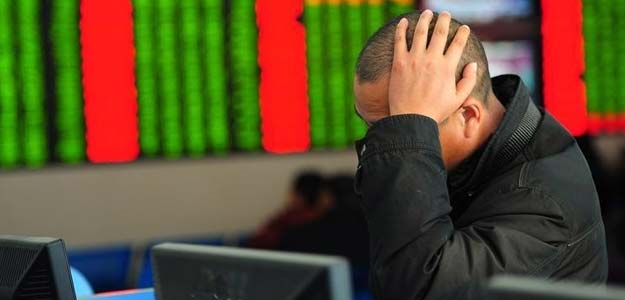After the burst of the dotcom bubble followed by the global financial crisis, industries in emerging markets are grappling to find their footing in what in a scenario suggestive of an economic landslide.
The near mania-like fever that once surrounded the growth of China has slipped past leaving industries and emerging market specialist - flabbergasted. The very firms that grew exponentially giving birth to thousands of jobs are now in the process of consuming their investors across Brazil, China and South Africa. Industries and businesses are slashing jobs.
London based Barclays Bank has already sounded the clarion of retreat and has announced it will be pulling out of Africa after more than a century of operations. It however insisted that its decision to withdraw from Africa was unrelated to the economic sentiment in that continent.
Case in point: At a time when investors had yet to discover the booming economies of China and Brazil, adventurous investors on the lookout of higher returns on their investments had poured into the emerging markets (EM). At the height of the boom, even ultra-conservationists such as pension fund managers joined the torrent of investors.
One such investor was was Devan Kaloo, head of emerging equities at Aberdeen Asset Management. He recalls a conversation with a European pension fund, way back in 2010, wherein it wanted to invest 80% of its assets into a sector, which until a few years back, was considered too risky for mainstream investors.
"I am an EM guy and I should have been jumping up and down and saying 'yes absolutely' but even I was thinking: 'seriously'?" said Kaloo.
Incidentally, Kaloo runs of the sector’s most successful funds delivering a return of 20%, which far outpaced the underlying emerging index, since its launch in 2003. His fund became so successful that he began charging new investors an entrance fee.
"EM became so much in vogue that we had investors coming to us who perhaps didn't understand the asset class; they looked at our track record and extrapolated that forward. We wanted to rebalance the book and to better cherry-pick clients," said Kaloo.
In the subsequent years, when the bubble burst, the main index run by MSCI, nose-dived by 35% and investors fled from the pangs of the emerging markets and returned to developed markets in the hope of reviving their lost fortunes. Their Assets Under Management (AUM) had been slashed from $16 billion to $5.1 billion, in 2013.
According to EPFR Global, $26 billion worth of capital fled emerging markets last year, a sizeable chunk of which formed part of the $153 billion inflow between 1996 and 2016.
The latecomers to the EM party who were lured by juicy returns were badly burnt.
The problem is, there is still some "fat in the system" says Shiv Taneja, principal at Market Metrics, which provides data to the asset management industry. It wouldn’t be surprising if more pain lies ahead.
"Emerging markets rode high on back of the commodity super-cycle and monetary accommodation, no questions asked. But now people are asking questions," said Greg Saichin, head of emerging debt at Allianz.
A possible way forward, as per Saichin, would be to incorporate flexible strategies which aren’t tied down to benchmarks.
The near mania-like fever that once surrounded the growth of China has slipped past leaving industries and emerging market specialist - flabbergasted. The very firms that grew exponentially giving birth to thousands of jobs are now in the process of consuming their investors across Brazil, China and South Africa. Industries and businesses are slashing jobs.
London based Barclays Bank has already sounded the clarion of retreat and has announced it will be pulling out of Africa after more than a century of operations. It however insisted that its decision to withdraw from Africa was unrelated to the economic sentiment in that continent.
Case in point: At a time when investors had yet to discover the booming economies of China and Brazil, adventurous investors on the lookout of higher returns on their investments had poured into the emerging markets (EM). At the height of the boom, even ultra-conservationists such as pension fund managers joined the torrent of investors.
One such investor was was Devan Kaloo, head of emerging equities at Aberdeen Asset Management. He recalls a conversation with a European pension fund, way back in 2010, wherein it wanted to invest 80% of its assets into a sector, which until a few years back, was considered too risky for mainstream investors.
"I am an EM guy and I should have been jumping up and down and saying 'yes absolutely' but even I was thinking: 'seriously'?" said Kaloo.
Incidentally, Kaloo runs of the sector’s most successful funds delivering a return of 20%, which far outpaced the underlying emerging index, since its launch in 2003. His fund became so successful that he began charging new investors an entrance fee.
"EM became so much in vogue that we had investors coming to us who perhaps didn't understand the asset class; they looked at our track record and extrapolated that forward. We wanted to rebalance the book and to better cherry-pick clients," said Kaloo.
In the subsequent years, when the bubble burst, the main index run by MSCI, nose-dived by 35% and investors fled from the pangs of the emerging markets and returned to developed markets in the hope of reviving their lost fortunes. Their Assets Under Management (AUM) had been slashed from $16 billion to $5.1 billion, in 2013.
According to EPFR Global, $26 billion worth of capital fled emerging markets last year, a sizeable chunk of which formed part of the $153 billion inflow between 1996 and 2016.
The latecomers to the EM party who were lured by juicy returns were badly burnt.
The problem is, there is still some "fat in the system" says Shiv Taneja, principal at Market Metrics, which provides data to the asset management industry. It wouldn’t be surprising if more pain lies ahead.
"Emerging markets rode high on back of the commodity super-cycle and monetary accommodation, no questions asked. But now people are asking questions," said Greg Saichin, head of emerging debt at Allianz.
A possible way forward, as per Saichin, would be to incorporate flexible strategies which aren’t tied down to benchmarks.















